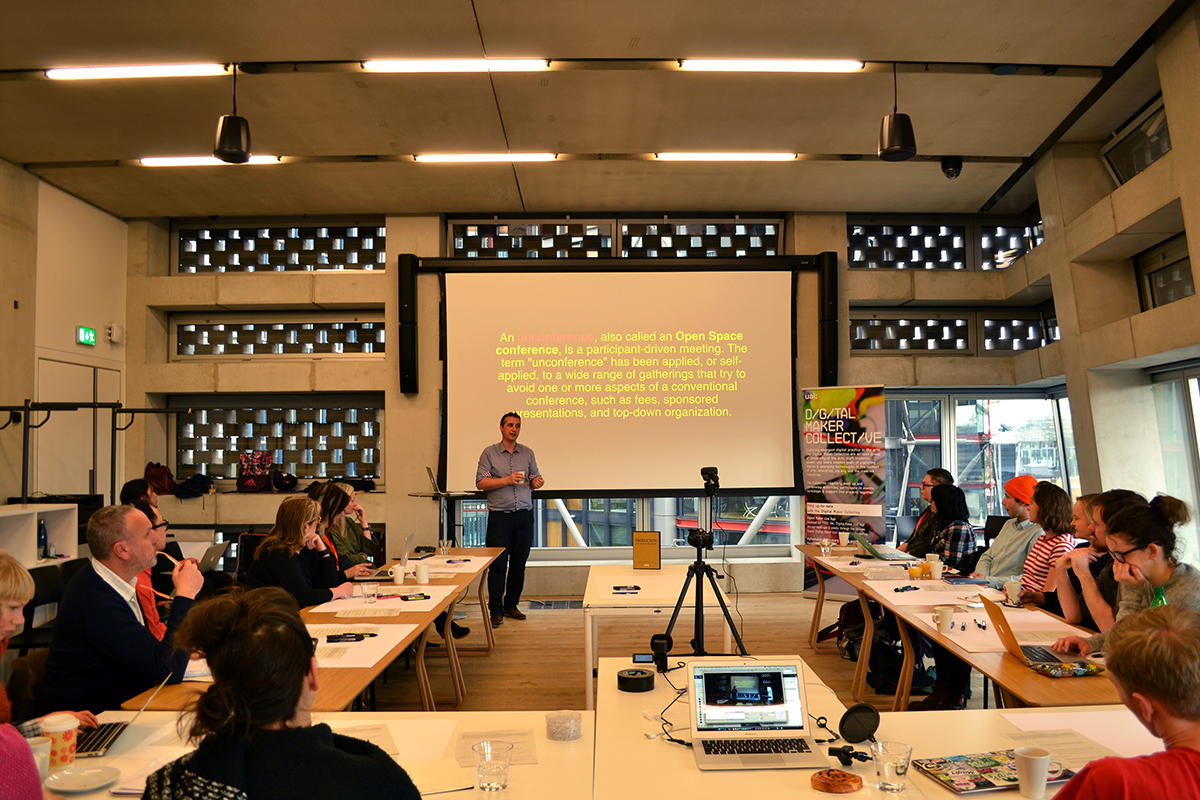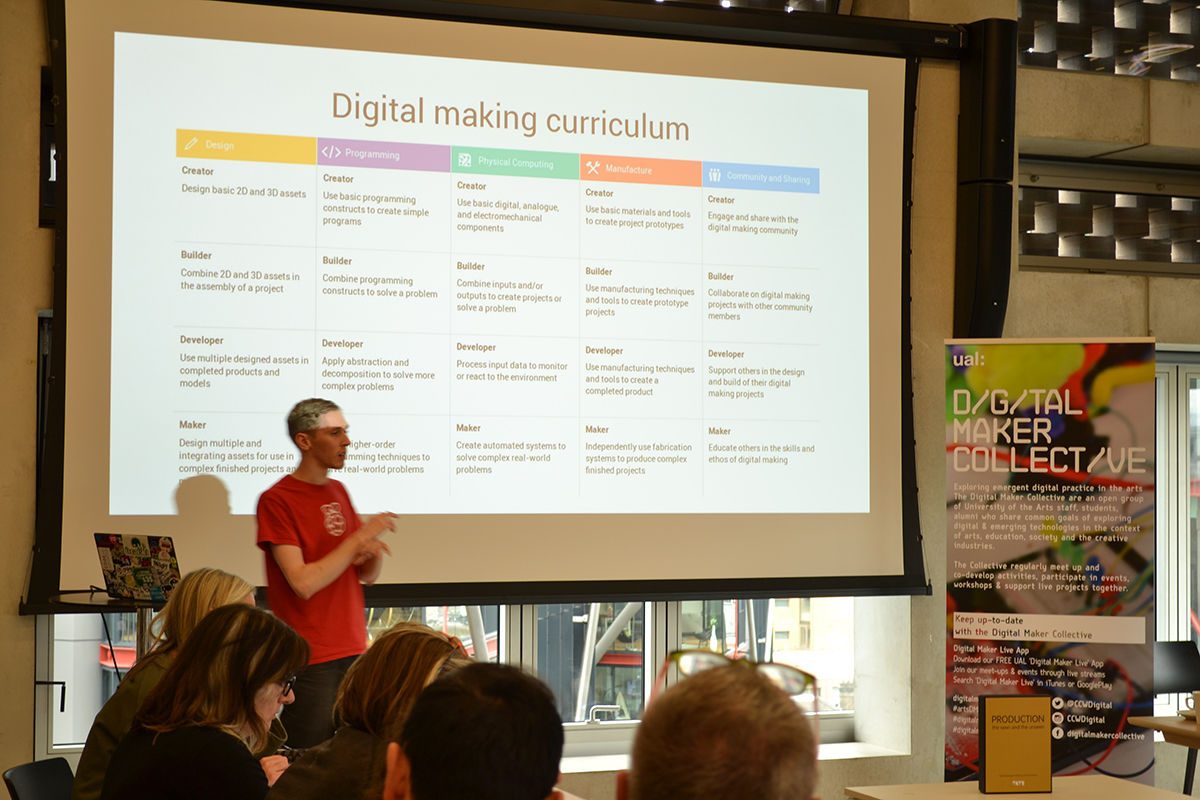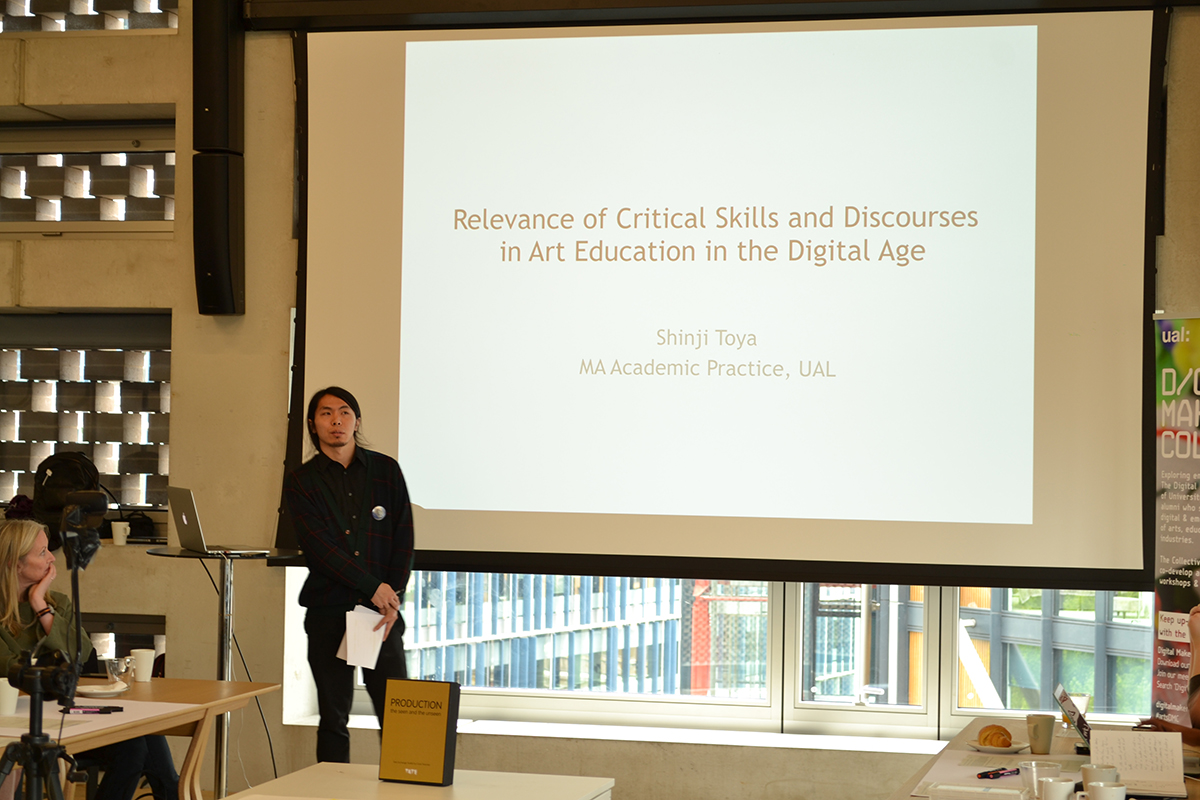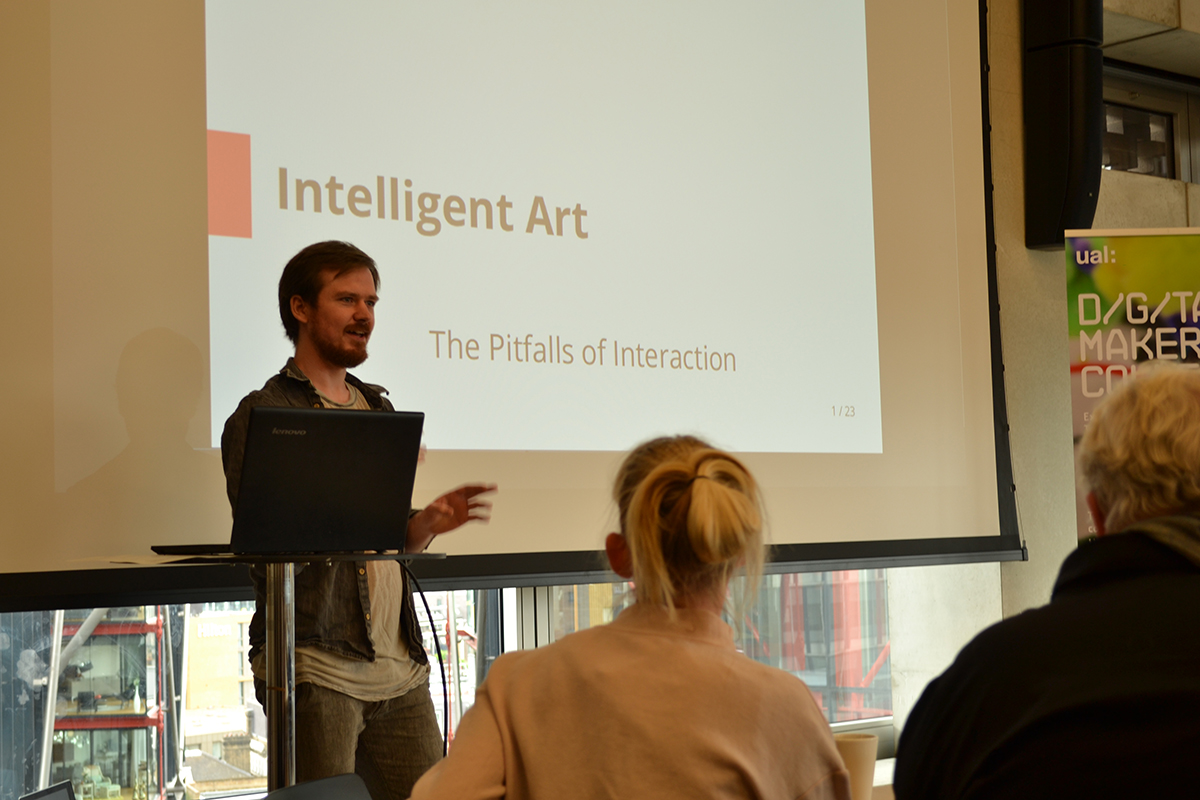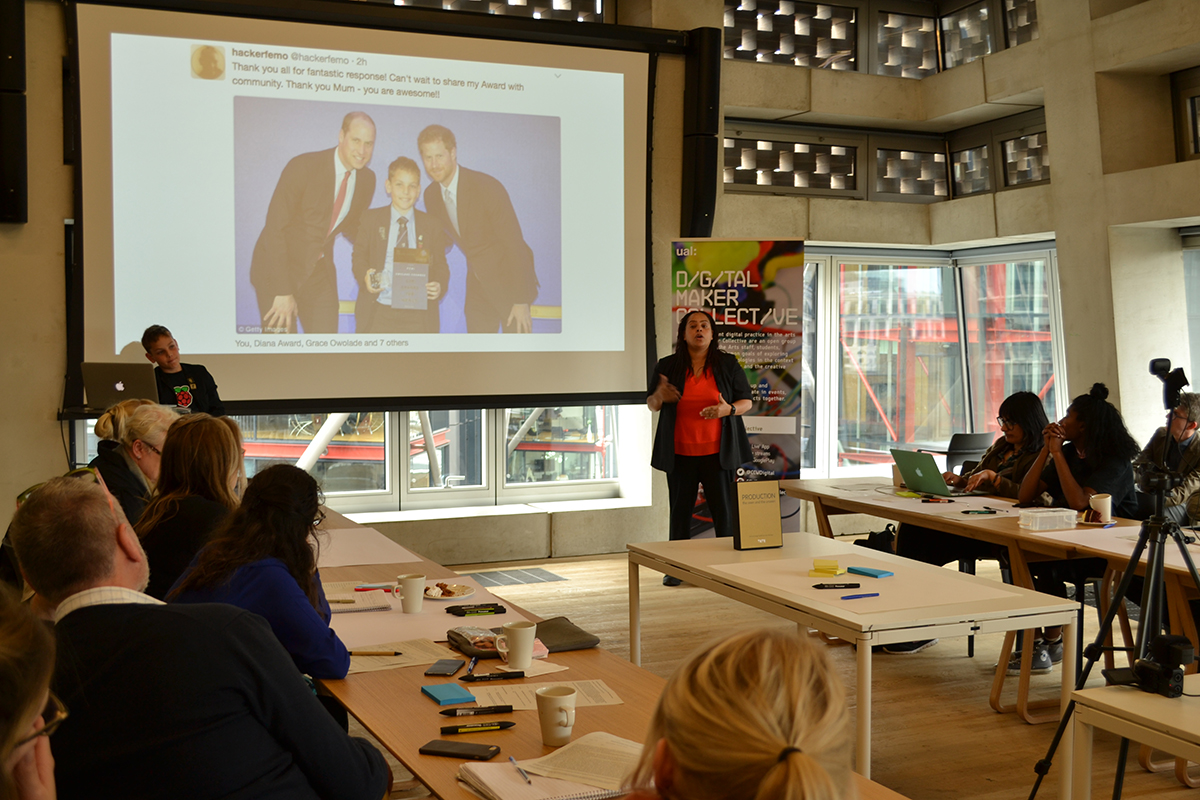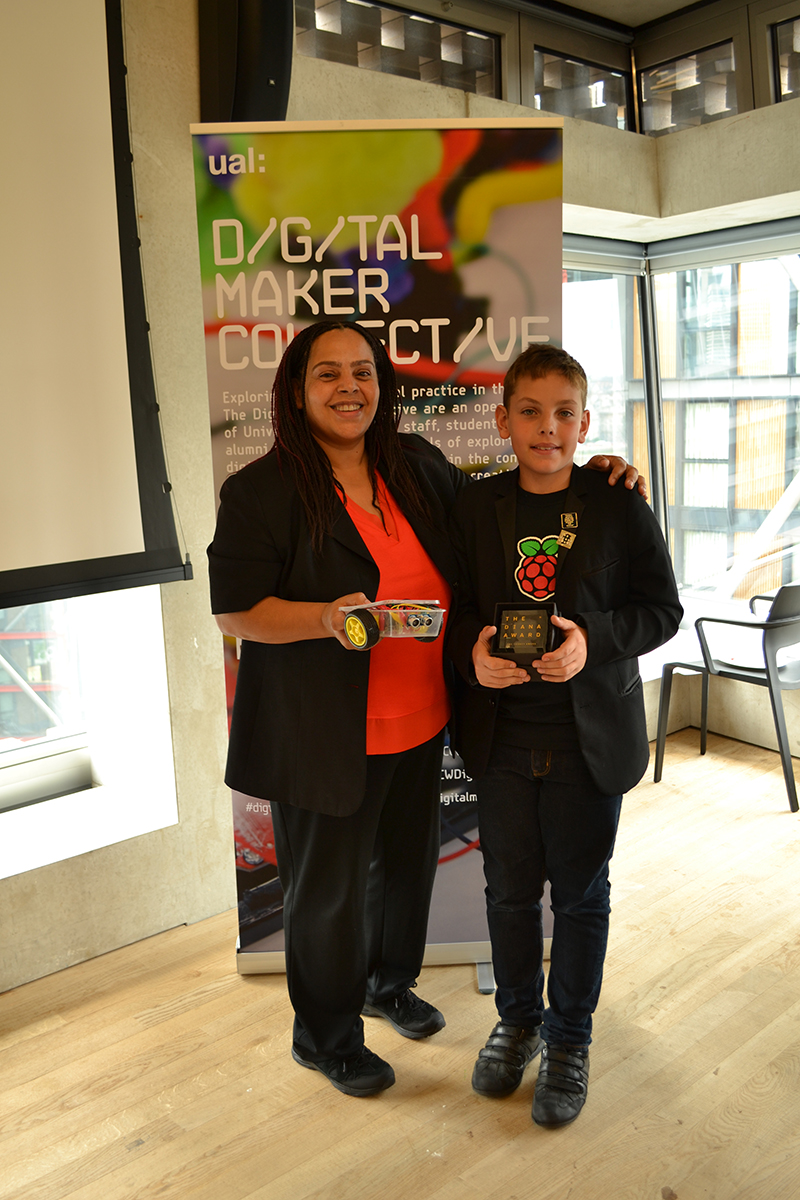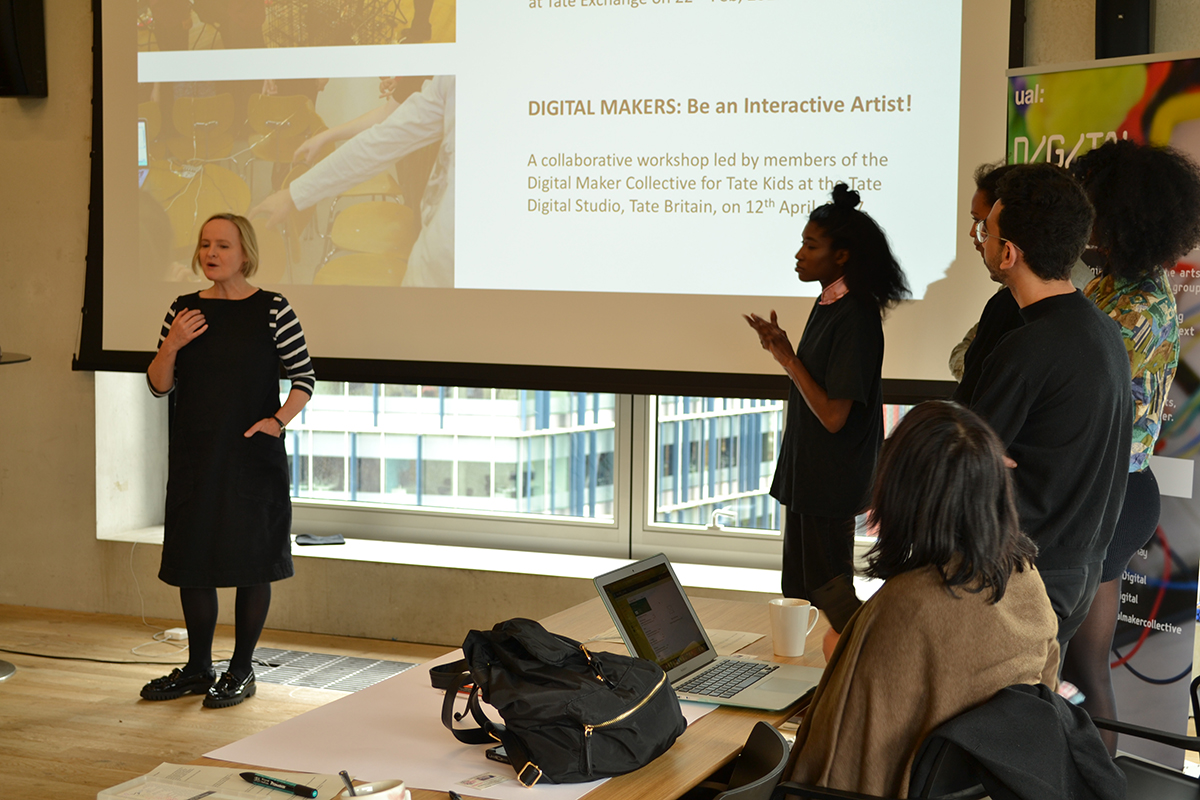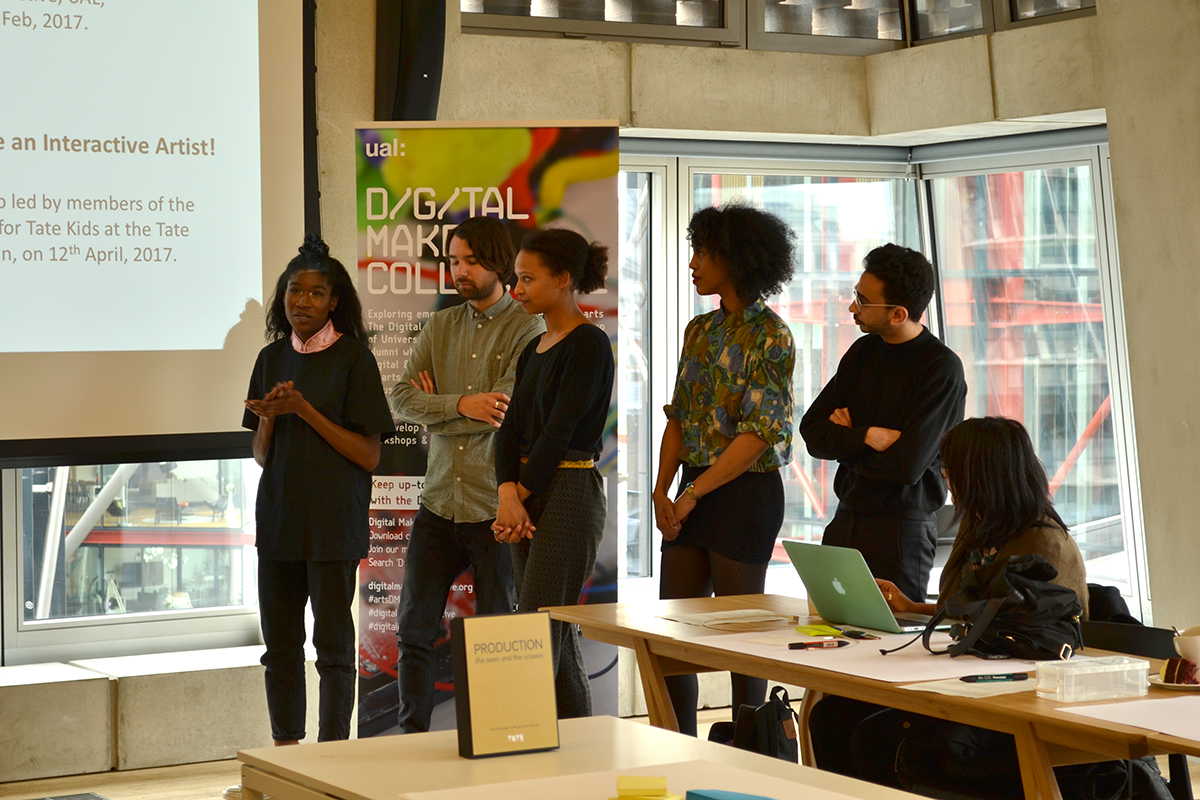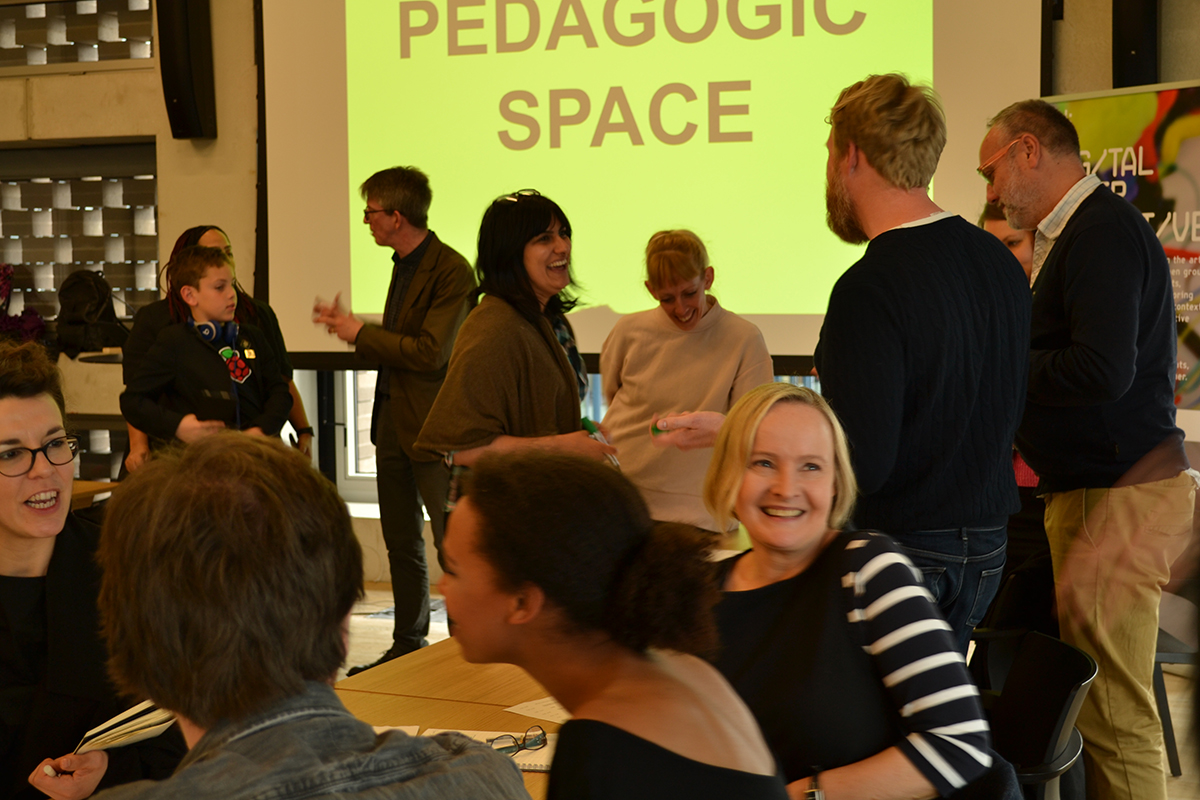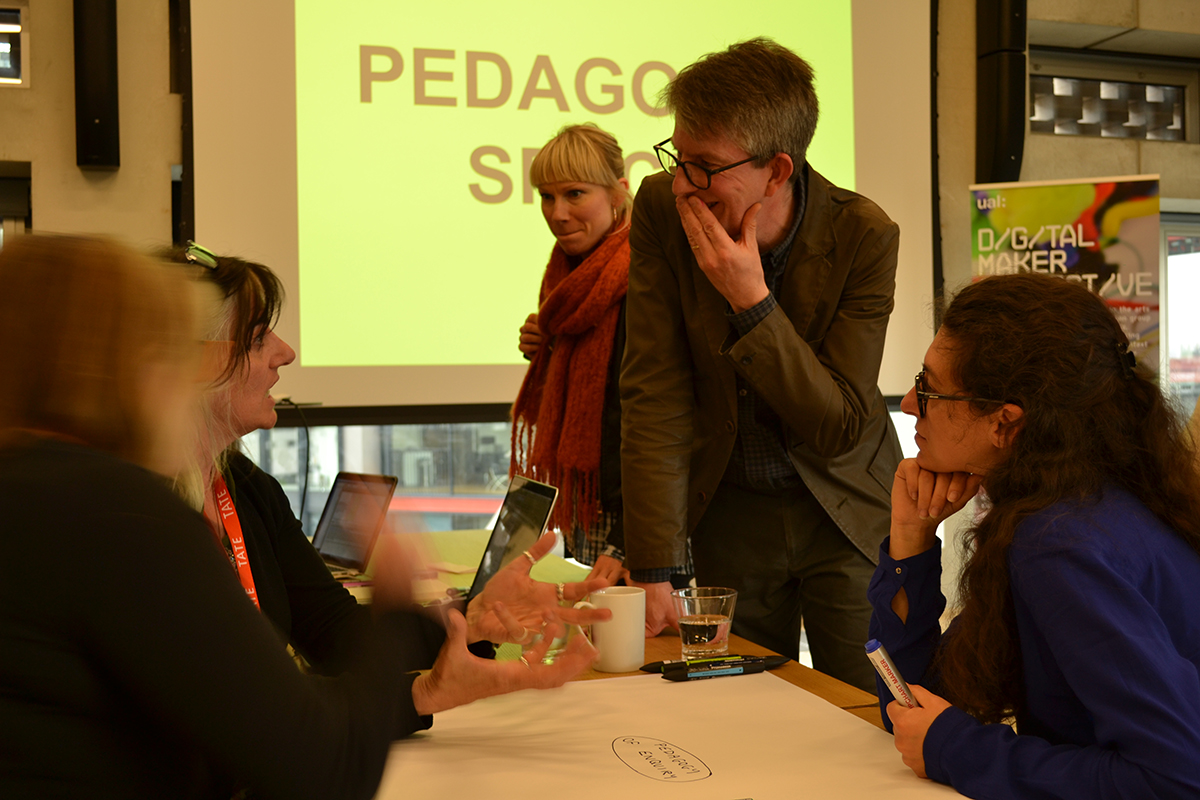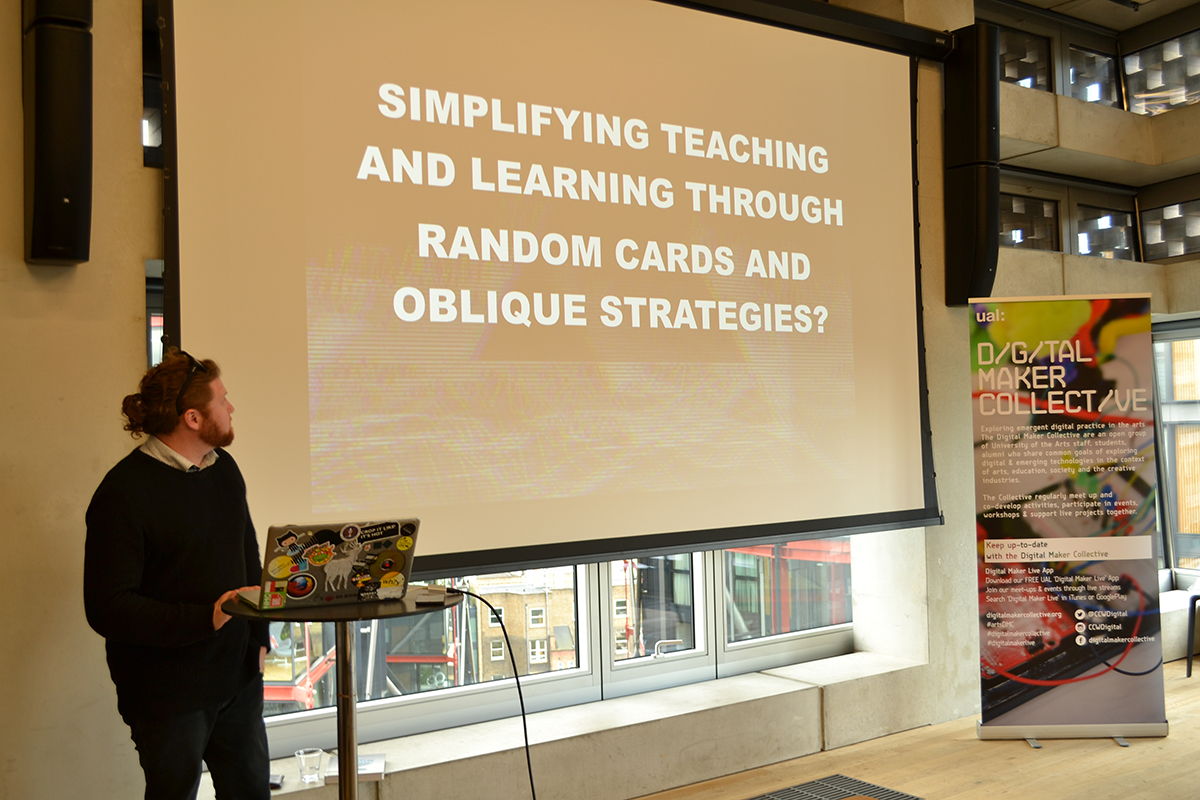19 May 2017 Programme Tate Exchange Unconference (Day 2 Images)
Tate Exchange Unconference: Friday 19 May 10:15 to 17:30 (Day 2)
Digital Making in Arts Curriculum, Practice and Career
Venue: Tate Modern, Tate Exchange, Switch House, Southwark Room, Level 5, London SE1 9TG
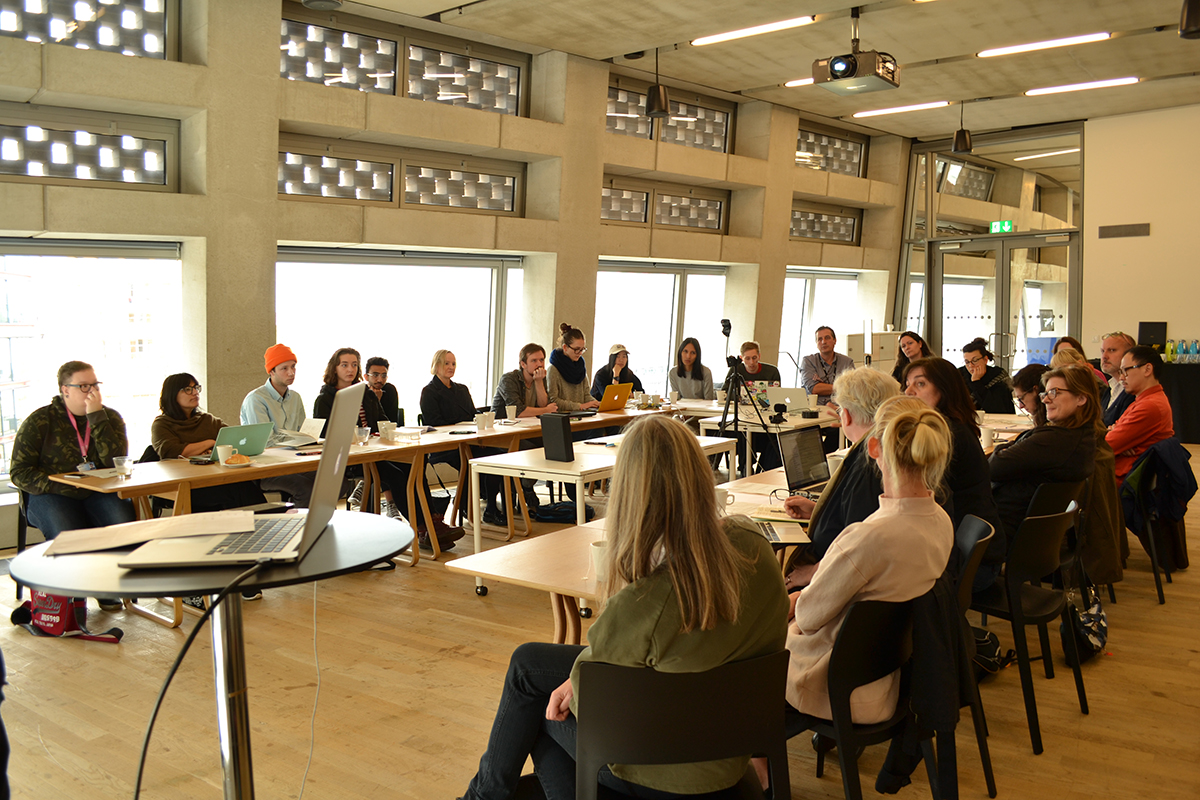
This Unconference provides an opportunity for staff, students, sector and industry to discuss and explore the impacts and challenges of new technologies on art, design & performance in curriculum and practice. Staff, students, sector & industry are invited (limited places & RSVP c.follows@arts.ac.uk essential) to join an informal participant-driven discussion which will reflect and build on the experiences of recent Digital Making Art School events at Tate Exchange in February & March 2017 and will question: How we integrate digital making in arts curriculum & practice?
Images by Sabrina Faramarzi
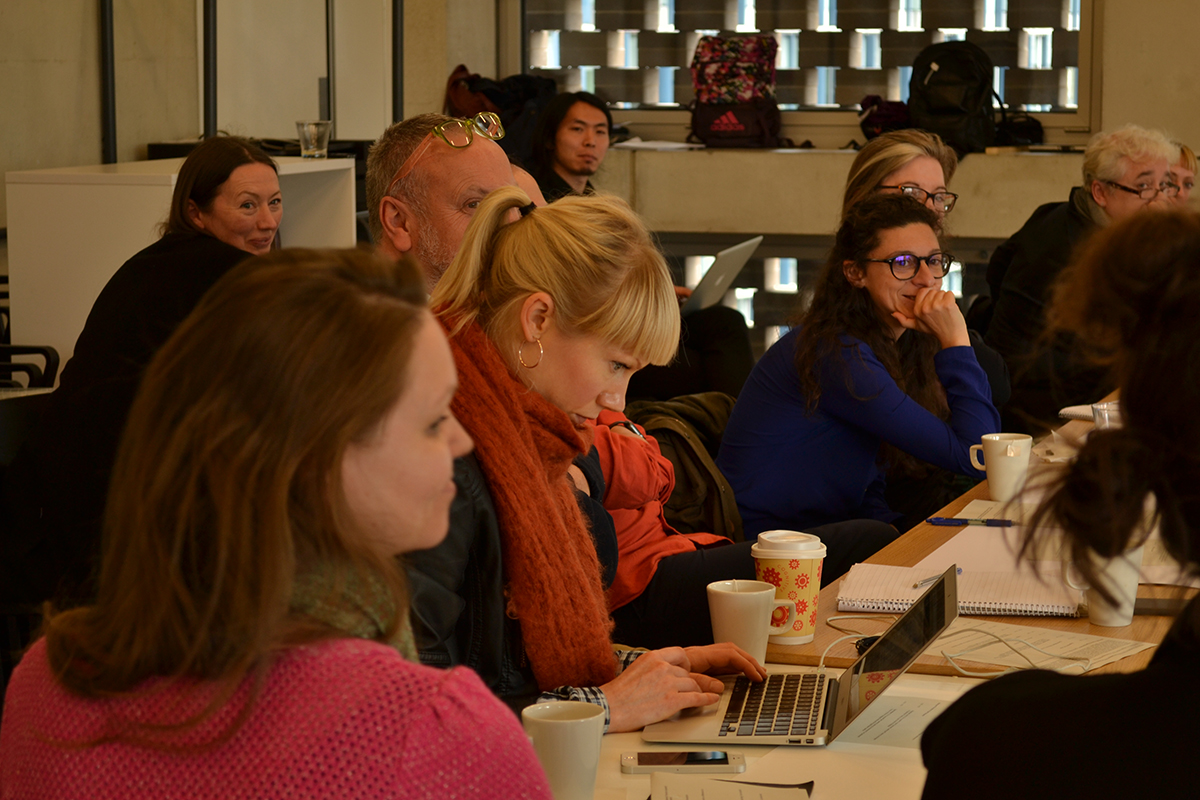
See more details here about the events and on the UAL events pages.
See Programme for 17 May 2017 (Day 1)
Read: Student Perspectives from Unconference, at Tate Exchange.
Agenda subject to change & see longer descriptions at the bottom of the page
Morning Provocation & Open Discussion Friday 19 May (Day 2)
| Registration and coffee |
|
Chris Follows: Welcome & Overview SEE SLIDES
|
|
Ben Nuttall: Raspberry Pi Foundation - digital making for everyone. The Raspberry Pi Foundation is working to put the power of digital making in the hands of people all over the world, and is well known for its series of small, cheap single board computers. SEE SLIDES below: Ben presenting at Tate Exchange:
|
| BREAK & OPEN DISCUSSION |
| Coffee |
|
Shinji Toya: (CSM MA Fine Art Alumnus, & PT UAL MA Academic Practice student) Relevance of Critical Skills and Discourses in Digital Art Education. SEE SLIDES.
|
|
Daniel Bandfield: (Chelsea BA Fine Art student) The Value of Interaction
|
|
Lunch & explore the Tate Exchange who are asking - How can art make a difference to society? Grace Owolade & Femi Owolade-Coombes we were really pleased to have been joined by Grace & Femi (our youngest member of the Digital Maker Collective) who had just been awarded the Diana Award, a very happy Femi & proud mum Grace talked about their journey, running Tourettes and Autism friendly tech events.
Grace & Femi with his Diana Award
|
Afternoon Provocation & Open Discussion Friday 19 May (Day 2)
| Nicola Rae: (Artist & CCW Academic Support) Collectively Learning and Teaching Technologies in Collaborative Teams to make Interactive Installations SEE SLIDES
Some members of the Collaborative Team
|
|
| Dave Webster: (CCW Associate Dean Learning Teaching & Enhancement) The Camberwell, Chelsea, Wimbledon Pedagogic Review and the Digital Makers Collective.
Lots of debate during the workshop:
|
|
| 14:55 - 15:00 |
BREAK & OPEN DISCUSSION |
| 15:00 - 15:30
Julian Stadon: Presentation (Julian Stadon Subject Leader, Innovative Media Practice UAL London College of Fashion) Random Cards/Oblique Strategies for Innovative Media Design.
|
|
| 15:30 – 15:45 | Coffee |
| 15:45 - 16:45
Sinéad McDonald: (Dublin based artist, photographer, digital media producer, and arts educator) Multi/Anti/Cross/disciplinary education and practice models.
|
|
| 16:45 - 17:00 |
Final Thoughts - Informal Plenary |
| 17:00 | End |
We hope to make this event as participant driven, engaging and productive as possible, and unlike a traditional conference we want to avoid long presentations (presentation/provocations 15min MAX) and provide more time for discussion. We have programmed a number of provocations to help support debate.
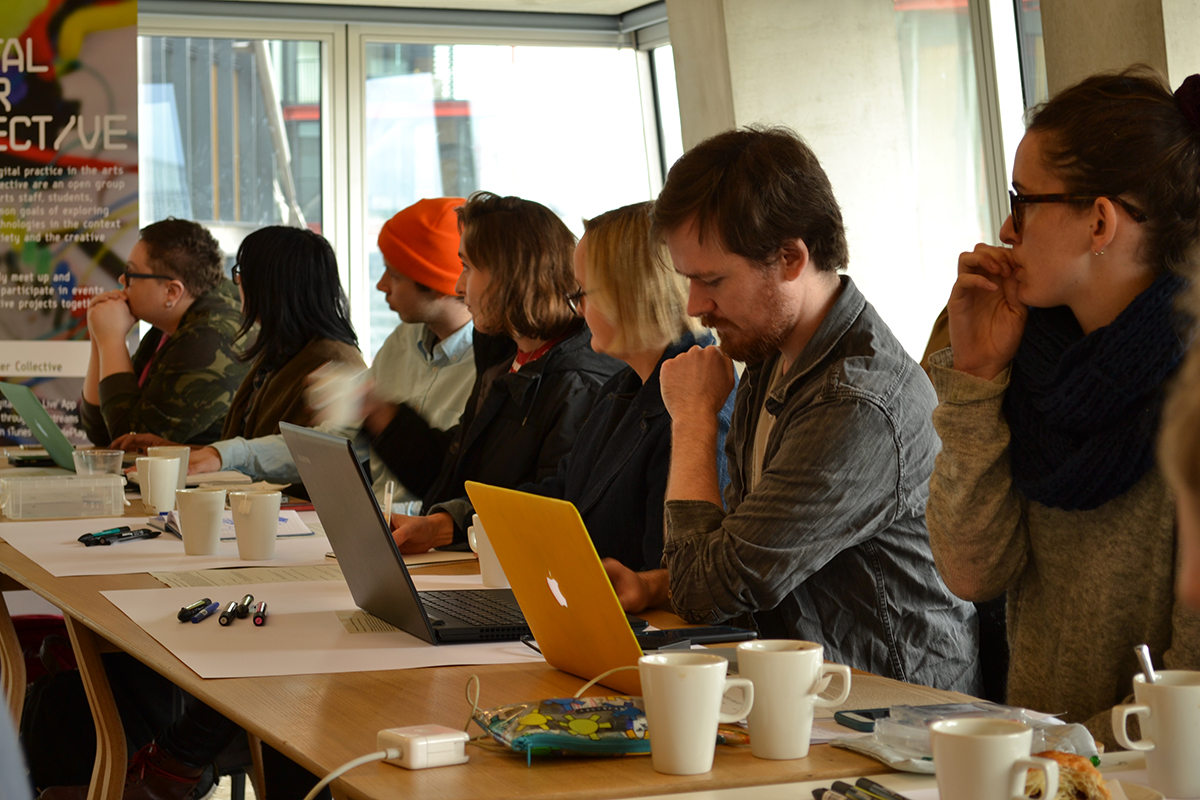
This event is part of the Digital Making in the Curriculum project, led by CCW Learning, Teaching & Enhancement (CCW-LTE) at Camberwell, Chelsea and Wimbledon Colleges of Arts, UAL. CCW LTE support the Digital Maker Collective a group of artists, designers, staff and students from the University of the Arts London (UAL) who explore emerging digital technologies in arts, education, society and the creative industries.
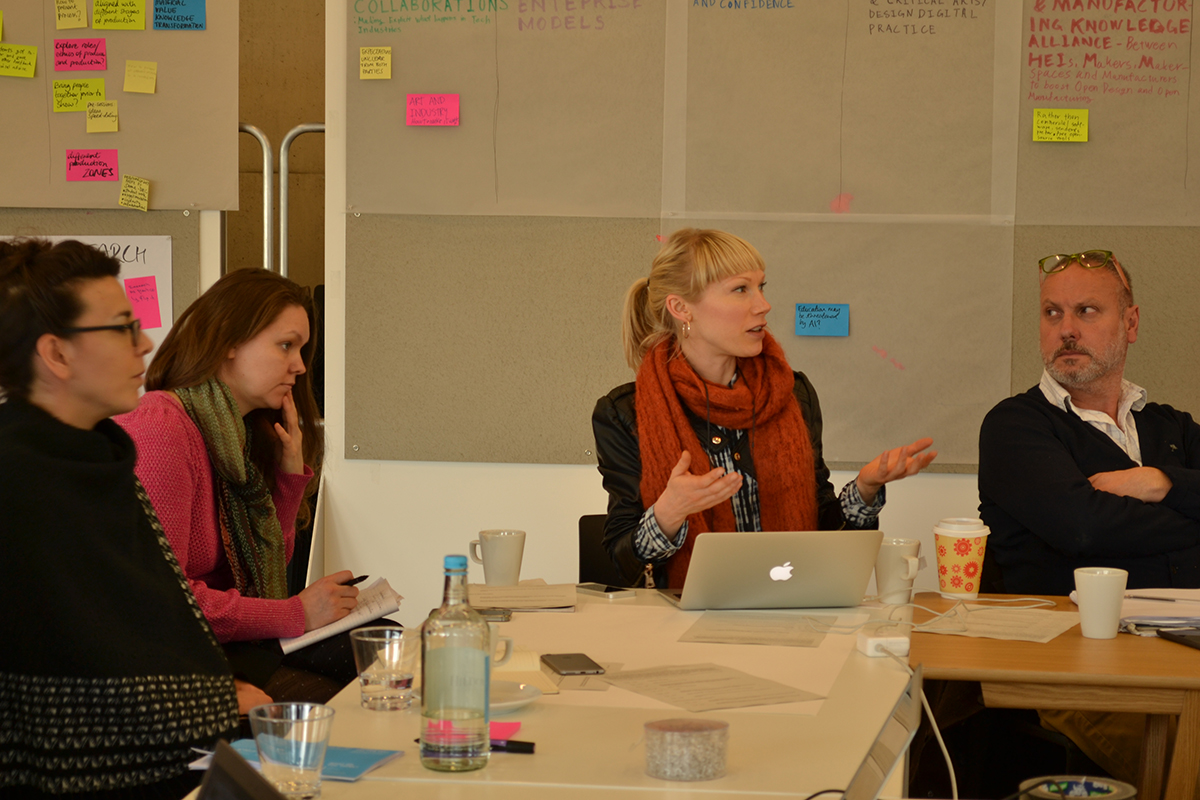
Long Descriptions:
Ben Nuttall: Raspberry Pi Foundation - digital making for everyone. The Raspberry Pi Foundation is working to put the power of digital making in the hands of people all over the world, and is well known for its series of small, cheap single board computers. With the Raspberry Pi, anyone can be introduced to the world of physical computing and IoT, starting with graphical tools like Scratch, building up to more powerful programming languages like Python. The Raspberry Pi community is full of enthusiastic individuals who build inspiring projects, and run Code Clubs and Raspberry Jam events to provide opportunities for others to learn.
Daniel Bandfield: (Chelsea BA Fine Art student) The Value of Interaction: Round Table Discussion - I would like to have a discussion about interaction within the art experience, and how this enabled or disabled by advanced technology. I think it's important to discuss whether there is a benefit to interactive art work, or if it just a distraction. I would also like to discuss how our everyday interactions with technology might inform an artistic experience. #digitalinteraction
Nicola Rae: (Artist & CCW Academic Support) Collectively Learning and Teaching Technologies in Collaborative Teams to make Interactive Installations Presentation / Round Table Discussion - We would like to discuss our experiences of collaborating on developing workshops with children at Chelsea's Digital Maker Collective Space, Tate Exchange and Tate Kids at Tate Britain during 2017. Working in teams of four, twelve and then seven to support the physical computing development and digital interaction of fifteen children has meant far more one to one support. These sessions allowed for learning experiences that became increasingly creative, interactive and performative. We will be discussing the pros and cons of this approach and reflecting on photos and films of these workshops. Will these workshops have developed a deeper interest in art, artists, galleries and art schools, or just the digital?
Shinji Toya: (CSM MA Fine Art Alumnus, & PT UAL MA Academic Practice student) Relevance of Critical Skills and Discourses in Digital Art Education Presentation / Round Table Discussion - In a short presentation, I would like to address the relevance of critical skills and discourses in digital art education (in HE or above) and digital art industry of the early post-millennium period. In turn, for a round table discussion I would like to pose the following question: since the beginning of the millennium, how has art education been responding to the relevance of the critical education concerning digital media and culture? The discussion will explore the question and the topic with participants of the session. #criticalmedia
Dave Webster: (CCW Associate Dean Learning Teaching & Enhancement) The Camberwell, Chelsea, Wimbledon Pedagogic Review and the Digital Makers Collective. Presentation / Round Table Discussion / Workshop - How do we ensure Art and Design pedagogy keeps abreast of social and technological developments? This discussion considers how the Digital Makers Collective engagement with the Tate offers a model of student engagement and interaction with technology which might help inform the development of courses in these three Art and Design colleges.
Sinéad McDonald: (Dublin based artist, photographer, digital media producer, and arts educator) Multi/Anti/Cross/disciplinary education and practice models Round Table Discussion / Workshop - The use of the Maker model in arts and humanities education, and the increasing entanglement of tech in practice. Antidisciplinary approaches to course design and delivery, with a particular emphasis on arts/media practice and electronics. Emerging models of good practice in building collaborations across traditionally siloed schools/departments. #artsandtech
Julian Stadon: (Julian Stadon Subject Leader, Innovative Media Practice UAL London College of Fashion) Random Cards/Oblique Strategies for Innovative Media Design Presentation / Round Table Discussion - I would like to discuss issues I have encountered teaching new technologies and innovative media approaches to students of all levels in a number of disciplines. In my opinion there is generally a lack of real practice based research and critical design thinking/methods being taugh and I have seen this first hand as a lecturer in several countries, across a range of educational fields, including art, media design, game design, audio, creative coding, Web development, audio engineering, interface design and fashion. For the last two years been I have been developing a hands-on approach to introducing design thinking for new media, that uses a cards based system, inspired by Brian Eno and Peter Schmidt's Oblique Strategies, under a new paradigm of Anthropocenic Design. After briefly introducing this system, a range student projects will be shown that were all established using this method. #randomcardsobliquestrategies #marart

